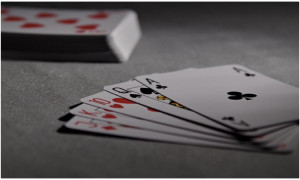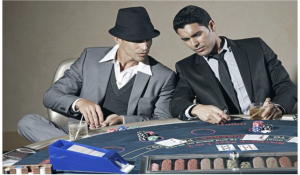One of the frustrating facts poker players face—especially novice players—is the intimidating feeling of playing a game where they can’t always see the other players’ cards. The lack of information and uncertainty creates a huge psychological barrier for many players, making them feel intimidated or uncertain when making decisions. Mastering the poker face is an important step in developing strong poker skills.
This article will help you explore and understand the key skills necessary to form a positive outlook and play confidently at the poker table.

How to Develop a Poker Face
It’s not possible to always read opponents’ hands, so players need to be able to mask their emotions and intentions when playing. To create a successful poker face, here are some tips to keep in mind:
1. Understand Your Emotions
Before anything else, it is essential to understand and recognize your own emotions. This will help you know when you are nervous or uncertain so that you can make conscious decisions to remain calm and collected during play. Next, find the reason behind each emotion. Understanding the source of your emotions will help you manage them better. Are you feeling anxious because of a certain situation or the stakes? Do you feel intimidated by a certain opponent? After identifying the source of your emotion, you can begin to develop a plan to manage it.
Letting your emotions win can be costly, so make sure you know how your feelings affect your decisions. A stoic mindset is necessary to keep your poker face in check—do not let the things you can’t control influence your poker game. Instead, focus on what you can control, like when and how to bet.

2. Body Language
Your body language speaks volumes. Even if you don’t let your emotions show on the surface, they may be reflected in your posture or facial expressions. Make sure to maintain a composed and relaxed demeanor at the table—no crossed arms, slouching, or frowns. Uncross your arms, sit up straight, remain still, and avoid unnecessary gestures. Your body language should stay consistent with the type of hands you are playing and the bets you are making.
Anxiety shows in subtle body movements, and it may sometimes appear like you are trying to hide something from your opponents. Have you seen professional poker players? Have you watched how they hold their cards and maintain a steady gaze? This is one of the most vital aspects of maintaining a poker face.
If possible, avoid any reaction that could potentially give away information to others, such as tapping cards or poker chips, talking too much or revealing private thoughts, or making sudden movements. It also helps to keep your betting patterns consistent and unpredictable.

3. Wear Something Comfortable
No matter how well you know the game, your clothing can affect your comfort and confidence at the poker table. Select an outfit that fits you comfortably and makes you feel confident. Some players wear hoodies or sunglasses to cover their facial expressions and protect their identity.
Color also plays a role. Wearing bright colors can help you stand out at the table and make you seem more confident, while darker colors will blend in and make your opponents less likely to notice you. Depending on how you want to appear to others, dress accordingly.
Furthermore, only bring the items you need to the table. Don’t carry distractions like phones or music players that could distract your attention from the game and give away information. Also, it’s disrespectful to others to look at a phone while playing.
4. Practice Mental Toughness
One of the most vital qualities a successful poker player must possess is mental toughness. It is essential to remain focused on the game, even when losses pile up. While staying positive throughout the game is important, be prepared to accept defeat and learn from your mistakes.
There’s a term used in poker when one’s gameplay isn’t going well—tilting. Tilting is when one’s emotions take over and their strategy gets thrown out the window. This is where your mental toughness gets tested. It’s one thing to understand your feelings, but another to condition your mind.
Mental toughness will also help you remain composed in stressful situations and make sound decisions that maximize your chances for success. In poker, one poor decision can cost you a lot of money. Therefore, staying focused and in control is essential when playing the game.
Final Words
By following these friendly tips, you can develop a strong poker face that instills confidence in your opponents and helps you stay in control of the game. A poker face can become second nature with practice, but it takes a lot of self-control to master. Just remember that playing with a poker face is about understanding your emotions, not suppressing them. And above all, focus on what you can control, not what you can’t. If you think you’re ready, visit GGPoker today. They offer various tournaments and cash games you will surely love!




















